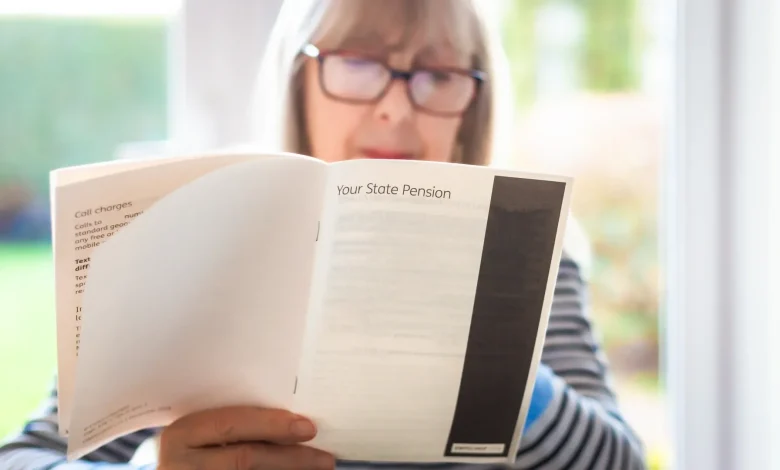Households set to pay back £200 winter fuel payment under Rachel Reeves’ stealth tax plans

HOUSEHOLDS are set to pay back their Winter Fuel Payment under Rachel Reeves’s stealth tax plans.
The Chancellor is poised to extend the freeze on tax thresholds to 2030 in her Budget later this week.
Sign up for the newsletter
Thank you!
Rachel Reeves is expected to extend a freeze on income taxCredit: AFP
But the deep freeze, coupled with generous state pension pay rises thanks to the triple lock promise, means that the £200 handout will essentially be completely wiped out by 2029/30, new analysis by wealth manager Quilter shows.
The winter fuel payment is worth between £200 to £300, depending on your circumstances, and is a free cash payment from the government to help households afford rising heating bills.
You must have reached state pension age in order to claim.
But households could start to effectively hand a slice of the handout back to the taxman from 2027/28, according to Quilter.
COST CUTTING
Brits have cut back more than £1,000 due to rising costs
TAXING TIMES
How 9.3million pensioners will pay tax if Budget raid goes ahead
That’s because while the state pension will keep rising, tax thresholds won’t – which means many households will have busted through the personal allowance threshold.
This is the amount you can earn without paying tax, which is set at £12,570.
If your income busts through the personal allowance threshold, you have to pay tax on the portion which is above the allowance.
The state pension goes up each year because of the triple lock promise.
That means payments go up by the highest out of three options: inflation (for the previous September), wage growth (based on May to July the previous year), or 2.5%.
Next year, it will go up by 4.8%, the government confirmed yesterday.
And under current estimates, pensioners could receive a 3% increase in the state pension in the 2027/28 tax year in line with the Bank of England’s projection for 2026 inflation, and a minimum of 2.5% annually after that.
That means the maximum state pension could rise to £13,623.83 by 2029/30. That means a tax bill of £200.17 on the state pension alone.
This would effectively cancel out the typical £200 Winter Fuel Payment received by many pensioners, the firm warned.
Pensioners will effectively be handing back some of their Winter Fuel Payment by 2027/28.
By this point, the state pension could rise to £12,968.98 – which would mean a tax bill on £69.47.
And by 2028/29, the state pension could rise to £13,292.49, based on current projections – a tax bill of £134.16.
Adam Cole, retirement specialist at Quilter, said the freeze would erase the government’s Winter Fuel Payment, which is designed to help those who are most “vulnerable”.
“Failing to increase the Winter Fuel Payment threshold would also create a variation on the fiscal drag theme, resulting in many losing the benefit entirely,” he said.
Quilter said the 2.5% uplift is the minimum amount the state pension can increase by, making this a conservative estimate.
Should inflation or wage growth continue to be higher than 2.5% in the coming years, pensioners could pay back their Winter Fuel Payment even sooner.
The Treasury confirmed its commitment to the triple lock policy yesterday evening.
It means the new state pension is expected to increase to £241.30 a week. This is up from its current rate of £230.25 a week.
Meanwhile, the old basic state pension will increase to £176.45 per week to £184.90.
The Sun has contacted The Treasury for comment.
Who is eligible for the Winter Fuel Payment?
The Winter Fuel Payment is worth between up to £300 and helps pensioners with rising energy costs.
Last year the rules changed and only people on certain benefits got the Winter Fuel Payment, which caused a lot of anger.
This winter, if you get the state pension and your annual taxable income is under £35,000, you should qualify.
Your income can include wages, private pensions and some state benefits.
Most eligible pensioners should have got a letter in October or November and the money should arrive from mid November.
If you don’t claim the State Pension or other qualifying benefits, you may need to apply.
If you’ve deferred your State Pension, call the Winter Fuel Payment Centre on 0800 731 0160 and claim by 31 March 2026.
The amount you get depends on your age and whether you live alone or with someone during the qualifying week, which ran from September 15-21.
If you earn more than £35,000 you will still be sent the payment unless you opted out by the September 15 deadline.
If you did not opt out, HMRC will take the Winter Fuel Payment back through your tax code from April 2026 or add it to your self-assessment tax bill.
More measures that could be announced this week
The Chancellor will set out her Budget plans in just two days.
Nothing has been confirmed so far, but rumours have been swirling for months.
The warning comes just days ahead of the Budget, with Reeves expected to punish Brits with a series of tax raids to help plug a multi-billion hole in the UK finances.
Cutting the current tax-free £20,000 Isa allowance to £12,000 and capping salary sacrifice schemes are just two more examples of how your pocket could be hit.
NO WEIGH
McDonald’s twice a day saw me reach 25st… I’ve lost 12st & now exes want me back
WASHOUT
I’m A Celeb in chaos as stars are EVACUATED from camp and filming delayed
Reeves is also expected to axe the 5p cut in fuel duty introduced temporarily in 2022 when oil prices spiked after Russia’s invasion of Ukraine.
Scrapping it would cost drivers around £100 more a year on average.
How can I protect myself from paying tax?
There are a number of measures you can take to mitigate the amount of tax you have to pay.
One way is to take advantage of all the tax-free incentives on offer.
For example, make sure to put any savings into an ISA. These savings vehicles let you deposit up to £20,000 per year, and any interest or returns you earn are tax-free.
And it is not just the interest you earn on them that is tax-free, but any withdrawals too.
For example, withdrawing 4% a year from a £100,000 ISA pot in retirement would amount to £4,000 of tax-free income each year, compared to taking it out of a regular savings account, which is subject to tax.
This could also be a good time to take advantage of pension savings.
You can save money into a pension tax-free, and any money saved into your retirement pots then has the opportunity to grow tax-free over time.
You can then withdraw up to 25% of your pot tax-free when you reach retirement age.
You can either do this as a lump sum or in smaller gradual amounts to top up your state pension without being taxed on it.


![Best Celebrity Shoes at 2025 LACMA Art + Film Gala [PHOTOS]](https://cdn1.emegypt.net/wp-content/uploads/2025/11/Best-Celebrity-Shoes-at-2025-LACMA-Art-Film-Gala-390x220.webp)


